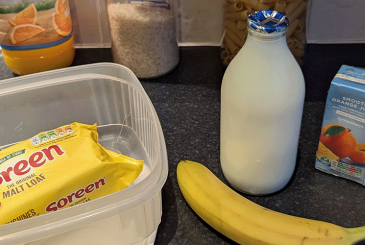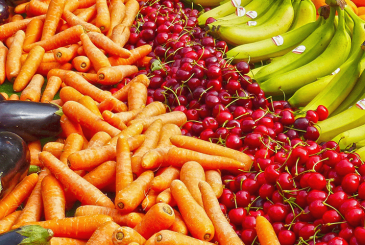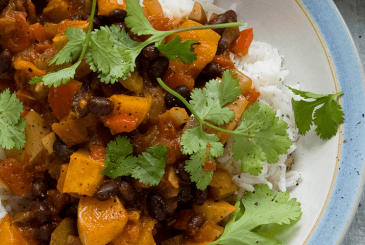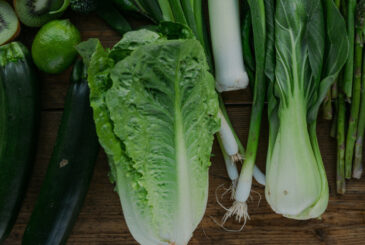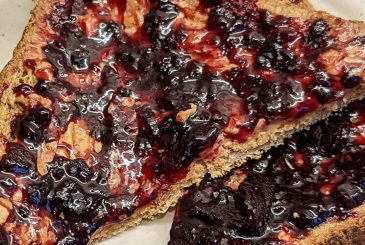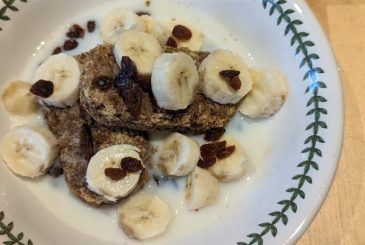During the winter season, it’s essential that we support our bodies with adequate fuel, recover well and eat plenty of fruit and vegetables to protect our immune system. Hatty Bates shares tips on how you can do this
Winter can be a challenging time; the days are getting shorter, the temperature is starting to drop and it may feel a little harder to motivate yourself to train. Throughout the winter months, having a healthy and well-balanced diet could help support your immune system and protect you from seasonal coughs and colds. This article will provide some tips about what’s best to eat throughout the winter months to help you train consistently without any of those annoying cold symptoms.
Fuel for training
Training with low carbohydrate or low energy availability may compromise your body’s immune system. Therefore, it is important to fuel appropriately for all training sessions and to avoid doing sessions fasted. Carbohydrates should form the base of pre-exercise meals and snacks as this is the macronutrient which provides us with energy.
| Examples of pre-exercise meals | Examples of pre-exercise snacks |
| Scrambled eggs on wholemeal toast | Banana |
| Pasta (cooked al dente) with tuna and sweetcorn | Malt loaf |
| Porridge | Homemade flapjack |
Recover well after training
A lack of adequate rest and recovery can affect your overall sense of well-being as well as negatively impacting your body’s ability to fight exposure to bugs and viruses. Recovering well after exercise is important, especially if you only have a short turnaround time between training sessions.
Start the recovery process as soon as possible after training. Recovery snacks and meals should contain a lean source of protein (containing approximately 20-40g protein), carbohydrate and plenty of vegetables. This may require a bit of thinking ahead and having snacks such as cereal bars, bananas and UHT flavoured milks ready in your gym bag.
| Examples of recovery meals | Examples of recovery snacks |
| Milk-based smoothies | Salmon with new potatoes and vegetables |
| Granola with Greek yoghurt and berries | Chicken stir-fry |
| Rice cakes topped with cottage cheese and cucumber | Three bean and vegetable chilli |
Eat the rainbow
As a minimum, try to have at least five portions of fruit and vegetables per day. Fruit and vegetables provide important vitamins and minerals, such as vitamin C, which help support the immune system. This also helps decrease the likelihood of developing micronutrient deficiencies.
Eating more fruit and veg throughout the day can easily be achieved. Firstly, include a portion of fruit or veg with every main meal. As an example, you could top your breakfast cereal with berries or a banana.
Secondly, have at least one piece of fruit or some vegetables as a snack each day, such as carrot sticks with hummus. If you don’t enjoy eating your greens, then blending fruit and vegetables into either a smoothie or soup could help you reach your daily intake.
Stay hydrated
Not only is being hydrated important for concentration and physical performance, it is also important to support the immune system. Saliva contains proteins with antimicrobial properties which prevent virus and bacteria entering the mouth. Therefore, it is important to avoid a dry mouth.
As a rough guide, aim to have a minimum of two litres of fluid, or 35ml/kg, throughout the day. Remember, you will need to drink more on days you train to replace the fluid you lose through sweating.
Easy ways to stay on top of your hydration include drinking a pint of water when you wake up, having a drink alongside all main meals and rehydrating properly after training.
Omega-3s
Omega-3 fatty acids have a positive effect on some of the immune cells and therefore should be part of a well-balanced diet. The best sources of omega-3 can be found in oily fish such as salmon, mackerel and sardines and should be consumed at least once per week. Plant-based omega-3 sources include chia seeds, flax seeds and walnuts.
Vitamin D
Vitamin D plays a role in many physiological functions including the immune system. Having sufficient vitamin D may decrease the frequency of getting colds and flu.
Foods rich in vitamin D are limited, with the main sources being oily fish, egg yolk, liver and wild mushrooms. However, you can get very little vitamin D from the diet.
The main source of vitamin D is from the sun, when we expose our skin to UVB-radiation. In the UK during the winter months, we do not have the appropriate UVB radiation to produce vitamin D and therefore appropriate supplementation may be required.
Prior to any supplementation, speak to a doctor or registered dietitian or refer to government guidance on supplementation during the winter months (October to March).
If you are an athlete, remember to check your supplements on the Informed Sport website to avoid breaching the anti-doping rules.
Look after your gut
Probiotics (friendly bacteria) can have a beneficial effect on gut microbial (bacteria present in the gut) balance and can enhance the immunity against illnesses such as the common cold.
The human gut contains over 1kg of bacteria, which plays key functions in supporting the immune system and producing certain vitamins such as vitamin K. Including daily fermented dairy products containing probiotics is a simple strategy to help contribute to the fight against winter bugs.
The bottom line
Now, more than ever, it is essential that we are providing our bodies with adequate fuel, recovering well after training and eating plenty of fruit and vegetables to protect our immune system.
In addition, try to consume at least one portion of oily fish each week, stay hydrated and consider adding a source of probiotics to your diet.
Hopefully, making these simple but effective changes to your diet, will decrease the likelihood of becoming ill and enable you to train effectively and consistently throughout the winter.
Photos: Victoria Self




